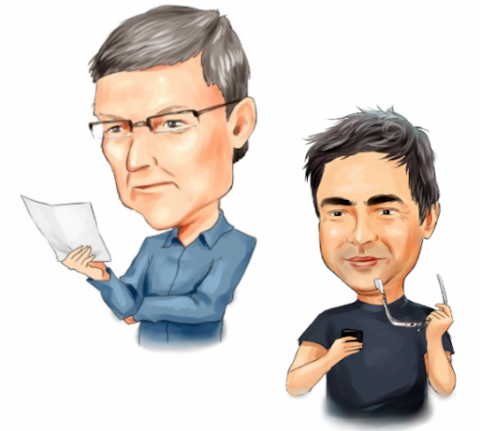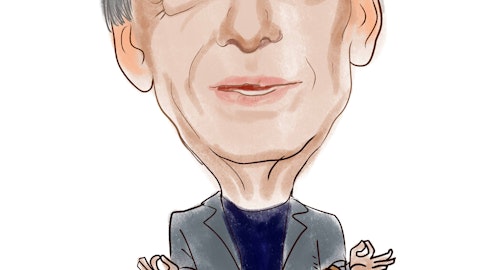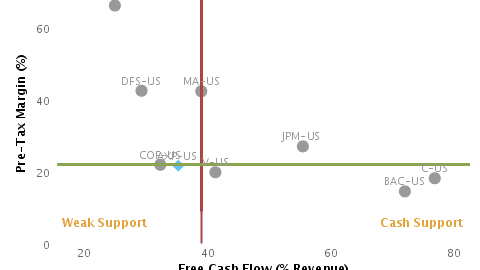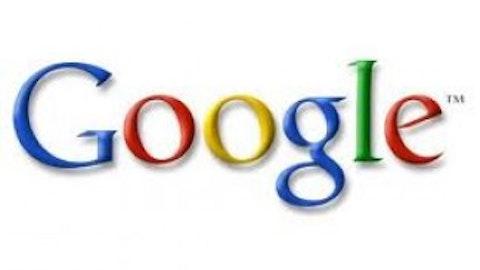Apple Inc (NASDAQ:AAPL) is a hedge fund industry favorite. That’s no secret. As we discussed in this article, and as the Wall Street Journal reported in their live video feed about the Insider Monkey Billionaire Hedge Fund Index, Apple is the most popular stock among hedge funds and billionaires. Since the start of 2012, the tech giant’s stock price returned close to 60%, but it has lost some of its luster after hitting $705 a few weeks ago. Apple Inc (NASDAQ:AAPL) currently trades in the $640 range, and estimates vary wildly on its intrinsic value.
Judging by traditional valuation metrics, the stock looks like a great buy at the moment, as it sports attractive forward earnings and free cash flow multiples, and trades at a sub-1.0 PEG ratio. While the bears have been busy over concerns of the iPhone 5’s faulty Map app (here’s more on Apple’s decision not to include Google Inc (NASDAQ:GOOG) Maps in iOS 6) fiasco and the potential cannibalization that an iPad Mini would cause to Apple Inc (NASDAQ:AAPL)’s existing product lines, you should be buying if you fancy yourself as a value investor, tech enthusiast, or a hedge fund monkey.
One money manager who loves Apple Inc (NASDAQ:AAPL), and who fits the bill for two of these attributes is Daniel Benton, manager of Andor Capital Management. Andor Capital is a New York-based firm with an estimated $1.2 billion in assets under management. Originally founded in 2001 when Benton left Art Samberg’s Pequot Capital Management, Andor was shut down during the 2008 financial crisis, only to be reopened last year. Benton has returned with a vengeance, stating that the traditional long/short model may be broken, and that his “style of opportunity-based exposure will be more successful going forward.”
Apple Inc (NASDAQ:AAPL) currently accounts for 34.2% of Benton’s 13F portfolio, nearly three times the size of his next largest holding: Amazon.com, Inc. (NASDAQ:AMZN). Amazon has been another splendid investment for Andor Capital, returning 41.5% since the start of the year. Unlike Apple Inc (NASDAQ:AAPL), however, the stock looks to be massively overvalued at the moment, whether its Amazon’s P/E of 298x or its PEG ratio of 8.7. Interestingly, analysts expect Amazon’s annual EPS growth to actually speed up over the coming five years (34.4%) compared to the past half-decade (25.0%), on the back of the company’s continued push into cloud computing and streaming movies. Unlike its retail business, however, Amazon does not have a distinct competitive edge in “the cloud,” as tech buffs would say, but this may be of little consequence.
The larger concern for Amazon is the eventual certainty that the majority of its customers will be forced to pay an online tax, as well as the Kindle’s inevitable decline as the dominant e-reader on the market. Apple Inc (NASDAQ:AAPL) will eventually spell this product’s doom, as the iPad Mini is set to take a chunk of Amazon’s 67% e-reader marketshare. As a point of reference, the Kindle only represents 14% of the overall tablet market, while Apple Inc (NASDAQ:AAPL) holds 51%. E-reader marketshare should more or less correct itself to be inline with the overall tablet marketshare by this time next year, assuming the iPad Mini is as advertised. In Andor Capital’s case, it has a piece of the action no matter how things shake out; a strong play indeed.
Following Apple Inc (NASDAQ:AAPL) and Amazon is eBay Inc (NASDAQ:EBAY), which comprises 12.3% of Andor’s portfolio. While it operates in a similar market as Amazon, eBay has arguably been out-innovating its larger competitor over the past year. The company has made a strong effort to diversify its retail operations, launching GiftsNearby, a website that allows consumers to check product availability at brick and mortar partners like Best Buy Co., Inc. (NYSE:BBY), Target Corporation (NYSE:TGT), and RadioShack Corporation (NYSE:RSH).
Moreover, eBay looks to be the most attractive e-retailer from a bill-paying standpoint, as it has a very synergistic partnership with PayPal. In exchange for nearly exclusive access, PayPal is specifically integrated into eBay’s operating system, which is arguably the most efficient way to pay online, aside from Google Inc (NASDAQ:GOOG) Wallet. eBay is much more attractively valued, as it sports earnings and cash flow multiples inline with historical averages. In short, it is valued much more like a retailer than a tech company, while Amazon is the other way around. Seeing as over 60% of each company’s revenues are derived from the sale of non-exclusive merchandise, we’d rather have eBay, which is priced according to its true function.
Speaking of Google Inc (NASDAQ:GOOG), it is Andor’s fourth largest holding, as the fund held over $29 million in the stock at the end of the second quarter. Much like Apple Inc (NASDAQ:AAPL), Amazon, and eBay, Google is also up double-digits since the start of this year. Judging by the returns that these four stocks have generated in 2012 thus far, and due to the fact that they represent over two-thirds of Andor’s 13F portfolio, we can estimate that Benton and the rest of his team have had a pretty good year.
Though it’s Google Maps app was spurned by Apple Inc (NASDAQ:AAPL) for inclusion into iOS 6, Google Inc (NASDAQ:GOOG) has gotten the last laugh, as Tim Cook did nothing short of recommend iPhone 5 users to make use of their web app as a replacement. It remains to be seen if Apple will allow Google to create an actual iOS 6 Maps app that is downloadable, but if this pessimism is any indication, it should do so quickly.
From a valuation standpoint, Google Inc (NASDAQ:GOOG) is more expensive than Apple Inc (NASDAQ:AAPL), trading at fairly valued trailing (22.1X) and forward (15.1X) P/E ratios, but there are no red flags here, and earnings growth is expected to tick up a percentage or two over the next few years. In the short term, the tech giant releases its Q3 results next Thursday, where it can quite possibly outperform analyst estimates on the back of a new Adwords Mastercard Inc (NYSE:MA) credit card, and its Nexus tablet, which has been receiving stellar reviews. Some analysts are worrying that the acquisition of Motorola Mobility Holdings Inc (NYSE:MMI) could slow growth, but that is pure conjecture at this point. We’re willing to bet that Google Inc (NASDAQ:GOOG) has the horses to outrace any efficiency issues with the Motorola acquisition, and the Apple Inc (NASDAQ:AAPL) snafu is just icing on its cake.
Last but certainly not least, salesforce.com, inc. (NYSE:CRM) is Andor Capital’s fifth largest holding, representing 8.1% of its portfolio. In the second quarter, the hedge fund reduced its stake in the software company by 33%, possibly because of overvaluation concerns. As noted in our article “Which Billionaires Are Betting It Isn’t 1999?,” Salesforce has the chacteristics of a mini dot-com bubble, up over 400% since 2009, and trading at a forward P/E of 104X and a P/S of 8.3X, which are more than four times larger than industry averages.
Just as Yahoo! Inc. (NASDAQ:YHOO) and Microsoft Corporation (NASDAQ:MSFT) experienced in the better part of last decade, Salesforce faces the risk that any false step could warrant a massive selloff. As is the case with many companies that are valued for growth, investors place a lot of focus on earnings reports. Apple Inc (NASDAQ:AAPL) looks undervalued at the moment, but the same principle applies with its stock as well.
In the second quarter, Salesforce beat the Street’s estimates by 8.3%, and the stock rose close to 2 percentage points in the next day of trading. One period earlier, the company met analysts’ expectations but reaffirmed strong guidance, and shares rose more than 11% over the next two days of trading. Understandably, investors are eagerly anticipating its Q3 release, which is tentatively scheduled for November 20th. Early estimates expect EPS to come in at 32 cents a share, down 2 cents from the same time last year.
While it’s obviously crucial to study which hedge funds are holding mega-caps like Apple Inc (NASDAQ:AAPL), Google Inc (NASDAQ:GOOG), Amazon.com, Inc. (NASDAQ:AMZN), it’s also important to take note of the rest of a manager’s holdings as well. Here’s a look at Andor Capital’s complete 13F portfolio, and here’s Insider Monkey’s comprehensive hedge fund database. Enjoy.






